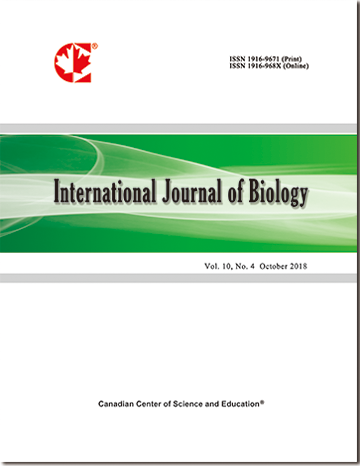Isolating Mercury-resistant Bacteria from Lake Maharloo
- Maasoomeh Aram
- Asghar Sharifi
- Farsheed Kafeelzadeh
- Mohsen Naghmachi
- Esmaeil Yasari
Abstract
Mercury is one of the most poisonous heavy metals, and because it is heavily used in industry, agriculture, dentistry, gold mining, etc., it pollutes the environment and the organisms living in it are threatened even by small amounts of mercury. Low concentrations of mercury cause chronic and acute poisoning and disorders in the senses of sight, hearing, and the nervous system; and; by passing the blood-brain barrier and the placenta, bring about brain damage, lack of mental development, blindness, and speech impairment of the fetus. The bacteria present in areas polluted by mercury are able to remove it from the environment through a reduction process. The salt lake of Maharloo is situated 23 km southeast of the city of Shiraz. All domestic, manufacturing, industrial, hospital, and agricultural wastewaters of Shiraz enter the lake via the Khoshk, Fassa Bridge and the Salameeyeh rivers and pollute it. Among the pollutants of the lake are heavy metals, especially mercury. The goal of this research was to isolate and identify mercury-resistant halo-tolerants from the water and the sediments present in the lake, and to investigate their capability in eliminating the mercury in the lake. After sampling water and sediments from four stations in the lake in all four seasons of the years, the mercury-resistant halophilic bacteria were isolated through enriching them in the L. B. Broth medium and culturing them in L. B. Agar containing salt and mercury. By measuring the mercury left in the environment using an atom absorption apparatus, the capability of the isolated bacteria that were most resistant to mercury in removing mercury was calculated and their growth synthetic studied. Mercury-resistant bacteria have a deciding role in the absorption and removal of this element from the environment. Strains of mercury-resistant halotolerant bacteria include those of Escherichia coli, Vibrio spp., Klebsiella spp., Citrobacter spp., etc.
- Full Text:
 PDF
PDF
- DOI:10.5539/ijb.v4n3p63
Index
- ACNP
- AGRICOLA
- BASE (Bielefeld Academic Search Engine)
- CAB Abstracts
- CiteFactor
- CNKI Scholar
- CrossRef
- DTU Library
- Elektronische Zeitschriftenbibliothek (EZB)
- Excellence in Research for Australia (ERA)
- Google Scholar
- Infotrieve
- LIVIVO (ZB MED)
- LOCKSS
- Max Planck Institutes
- MIAR
- PKP Open Archives Harvester
- Qualis/CAPES
- ResearchGate
- ROAD
- SafetyLit
- SHERPA/RoMEO
- Technische Informationsbibliothek (TIB)
- Universe Digital Library
- WorldCat
Contact
- Ryan JonesEditorial Assistant
- ijb@ccsenet.org
